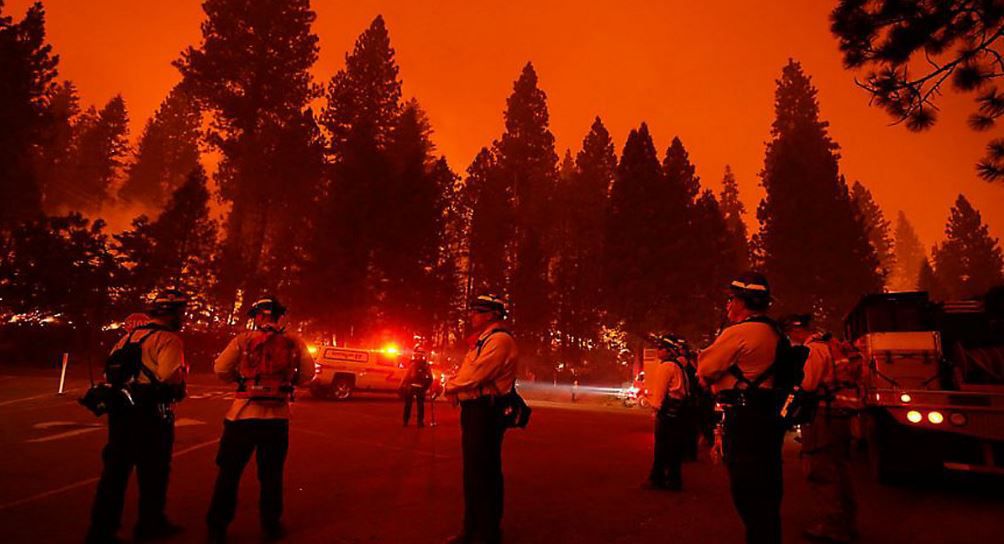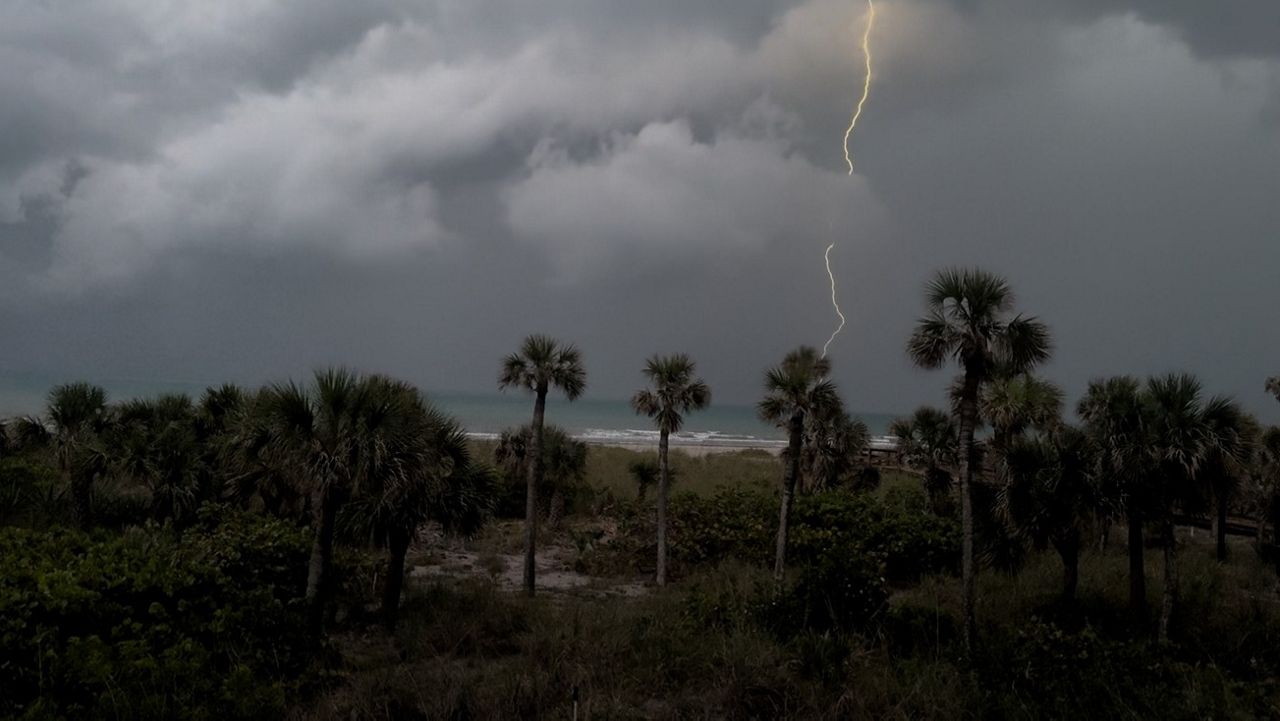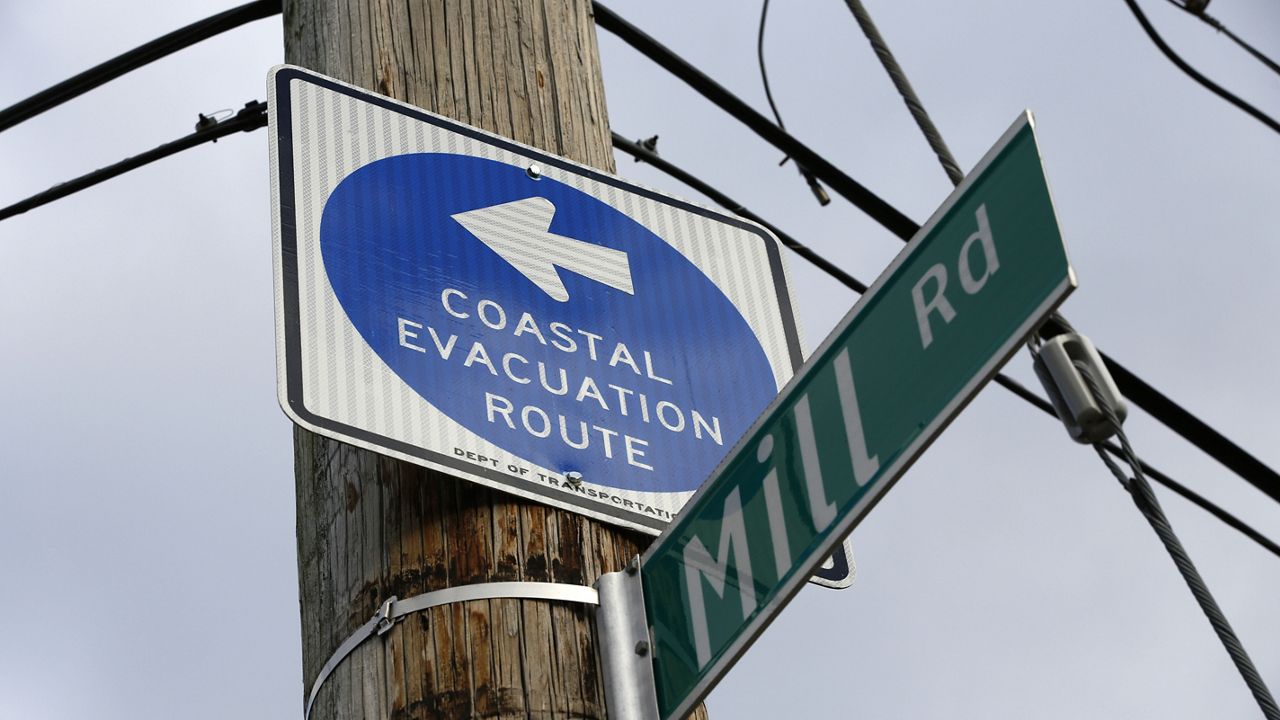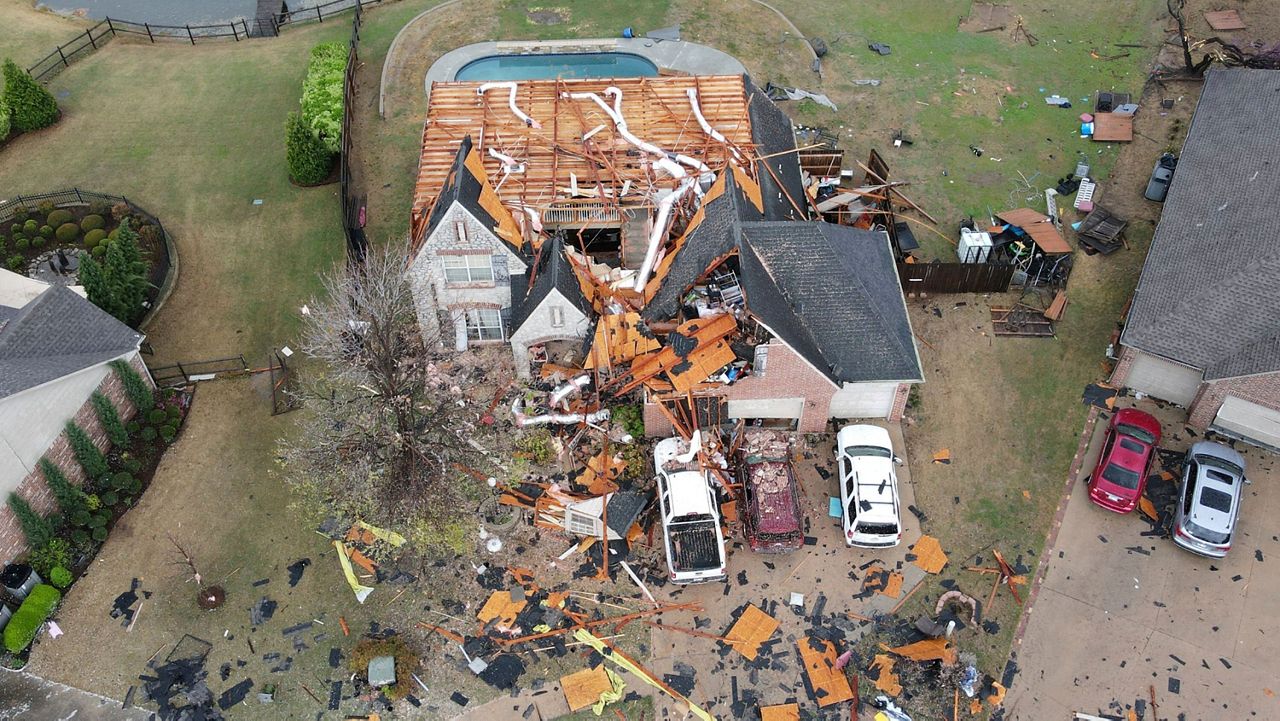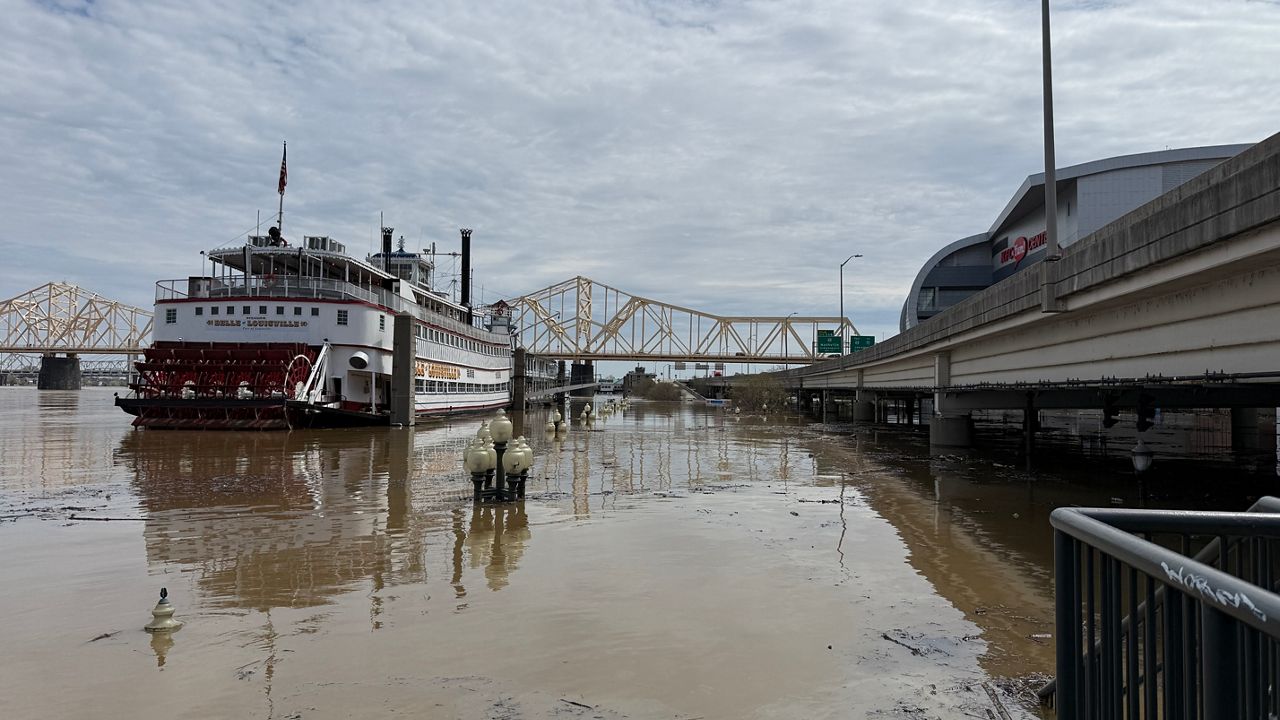In a year like no other, it shouldn’t be a huge surprise that 2020 also brought exceptional drought, helping fuel a record wildfire season in the West.
The West saw several periods of record warmth and near-record dryness this year. In fact, six states recorded their hottest August on record, all located in the West.
Death Valley, California, one of the hottest locations on the planet, saw the thermometer climb to 130 degrees on August 16. This was the hottest temperature recorded anywhere on the planet in years.
These conditions helped to further exacerbate an ongoing drought that began earlier in the year.
The map below depicts areas of drought across the country at the beginning of 2020.
Areas of moderate to severe drought were present along the Four Corners region, as well as parts of South Texas. Overall, just 11% of the country was experiencing dorught conditions.
Fast forward to the end of the year and here is the result:
The dry, hot weather of summer and fall has led to a dramatically worse situation, with 50% of the country now experiencing drought conditions.
This includes nearly the entire state of California and all of the Southwest.
With Mother Nature baking the West, conditions were ripe for wildfires.
Over three million acres burned in California alone, a record for any fire season. In fact, four of California’s top five largest fires on record occurred this year.
By September, as the fires raged, smoke blanketed the skies across the West. Scenes like the one below were common in major cities along the West Coast as air quality reached historically poor levels.
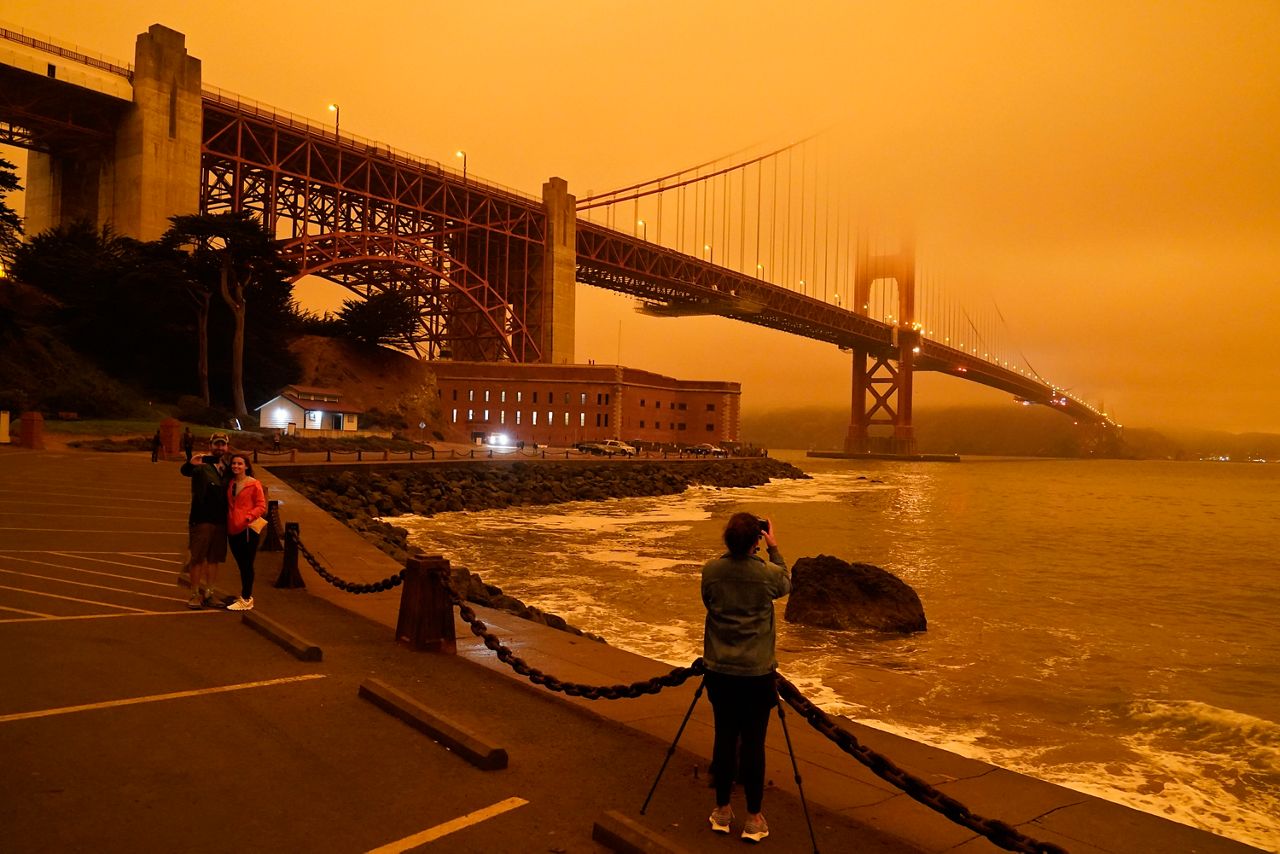
Picked up by the upper winds of the atmosphere. the smoke was carried east, creating a haze in the sky thousands of miles from where the fires burned.
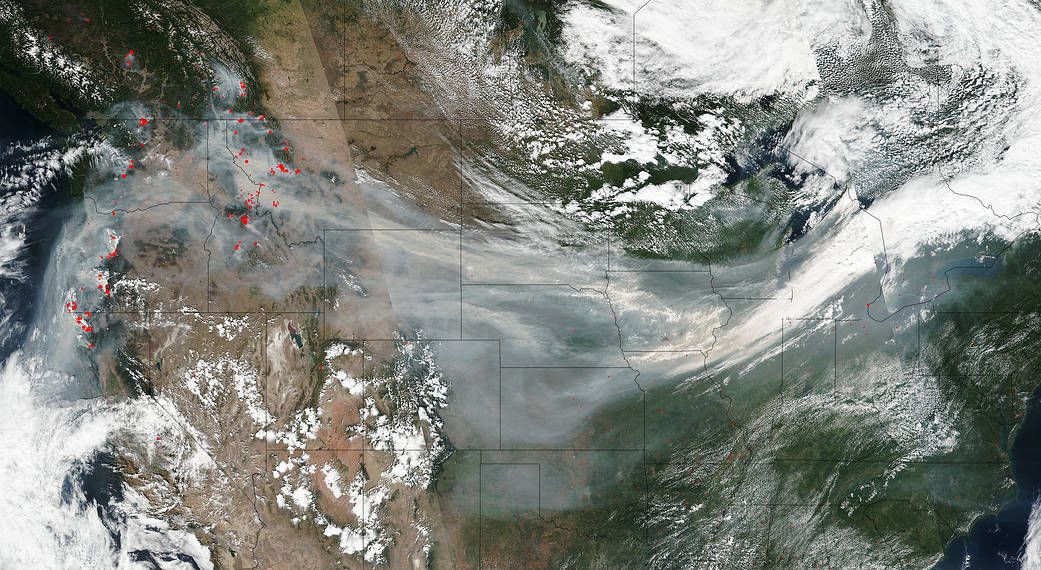
With nearly $3 billion in damages (and still counting), this year’s fire season is the costliest on record. Over 10,000 building have been destroyed, and tragically, 46 people have lost their lives.
Tomorrow, we’ll reveal our top weather story from 2020. In the meantime, here’s a look at the third-biggest story from 2020: the deadly Midwest derecho in August.




